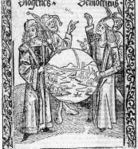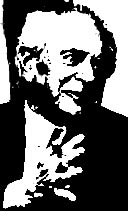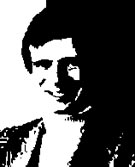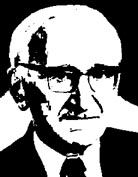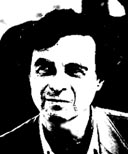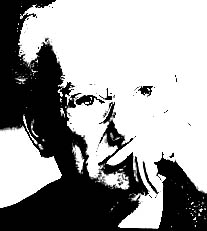About the Philosophers
Philosophy & Science
German woodcut.1511
"Ship of Fools"
John Watkins was a Commander in the Royal Navy and came to the LSE as a mature student after WW2. He played a solid innings with many good papers and was eventually rewarded with Popper's Chair. His detailed biography of Popper is worth a read. Review by Rafe Champion: Freedom and Rationality: Essays in honour of John Watkins
Gerard Radnitzky is a retired professor of philosophy of science at Trier, in western Germany. He was one of the first to see the potential for a merger between the ideas of Popper and Hayek's views on political economy. In one of his publications, Science As A Particular Mode Of Thinking And The Taming Of The State,he described how the rise of science, free trade and the limitation of state power were parallel developments.
Jeremy Shearmur, like just about everyone else, was a research assistant to Popper. He has combined his interest in Popper and Hayek to take a classical liberal and free market line which is controversial among Popperians who prefer to read him as a social democrat. He has worked in the US and more recently to Australia at the National University. His site.
The late Peter Medawar was a Nobel Prize winner in medicine and a huge admirer of Popper and his ideas, both his philosophy of science and his social philosophy. He was not one of Popper's research assistants, although he probably could be regarded as one because he visited regularly for afternoon tea. He wrote that he was envious of people who had not read the Open Society because they had such a treat in store.
An overview of Medawar's distinguished career in science and a review of an important collection of his essays can be read here.
Karl Popper (1902-1994). Born in Vienna, this mercurial woodworker and moralist first came to popular attention with The Open Society and its Enemies (1945). He described this as his war effort, a profound critique of Plato and Marx and a defence of democratic priciples which he wrote during a working holiday in New Zealand from 1937 to 1945.
At the London School of Economics from 1946 to 1969, he resumed the work on logic and scientific method which he had pursued as a major hobby in previous schoolteaching years when he was referred to as the offical opposition to the Logical Positivists of the Vienna Circle. In the 1950s, his first book (published in German in 1934) was translated as The Logic of Scientific Discovery (1959).
Karl Popper
In the 1960s, Popper's thinking took a marked evolutionary turn and biology became a twin obsession along with his first love, physics. He remained active in retirement, with a large and appreciative following among scientists. He never achieved the same standing in the mainstream of philosophy. One of Bartley's most interesting achievements was to provide a plausible explanation for this strange situation..More on Karl Popper here and an overview of his career here. See the synergy of Popper and Mises. Byran Magee's pen portrait of Popper.
He also wrote some hundreds of pages to be printed as The Postscript to the Logic of Scientific Discovery. Illness, continual revisions and other work delayed the finalisation of this publication until Bill Bartley assumed editorial responsibilities and The Postscript appeared in three volumes in the 1980s.
Bill Bartley (1934-1990) was an outstanding scholar, editor and biographer. His achievements in any one of these endeavours would have satisfied the ambitions of most people and this is all the more remarkable as he died tragically young.
William Warren Bartley III
Originally a Harvard man, he later studied in London with Karl Popper. His doctoral work led to the publication of an exciting and pathbreaking book on the crisis of rationality in modern Protestantism, titled The Retreat to Commitment. This was reissued by Open Court in 1985 with additional material charting some important developments in his thoughts on rationality and the limits of criticism.
As a biographer he made a mark with best-selling books on Wittgenstein and Werner Erhard, the founder of Erhard Seminars Training (est).
In the 1980s he assisted Popper to publish the long-awaited Postscript to The Logic of Scientific Discovery which had been in galleys since the 1950s. Subsequently he began work on a biography of Popper. His research led him to interview F A Hayek, leading to an invitation to be the authorised biographer of Hayek. As the General Editor of the 'Hayek Project', he set out to produce a new and uniform edition of Hayek's collected works. More on W W Bartley here.
Friederich August Hayek (1899-1992) became the leading modern exponent of the Austrian school of social thought which was started by Carl Menger (1840-1921)and aggressively carried forward by Ludwig von Mises (1881-1973). The distinctive features of the Austrian school are methodological individualism and the subjective theory of value. 'Austrians' have tended to be libertarians or non-socialist liberals and Hayek was the major opponent of Keynes in the 1930s.
F.A. Hayek
In 1945 Hayek published The Road to Serfdom as a warning to the socialists of the world, explaining the similarity of communism and fascism and the way that freedom can rapidly be eroded when governments attempt to achieve too much. Socialism was so deeply entrenched among the intellectuals that Hayek founded the Mont Pelerin Society to keep alive the embers of non-socialist liberalism.
Hayek graced many disciplines with his wide-ranging scholarship and incisive thinking. His efforts were rewarded with a share of the Nobel Prize for Economics in 1974. In addition to his contribution to economics, he wrote important books in the history of ideas, the methods of the social sciences, the principles of psychology and the evolution of morality and the spontaneous orders of modern civilisation. His last book The Fatal Conceit: The Errors of Socialism was edited by Bill Bartley.
More on F A Hayek here.
Joseph Agassi studied physics in Israel and moved to London where he had the good fortune to discover Popper and work as his research assistant from 1953 to 1960. He joined the staff at the LSE, then moved on to academic posts at Hong Kong and places further East. Possibly the most wide-ranging of Popper's students, he has meditated on almost every subject under the sun. See this inspiring paper on the nature of originality, applied to Popper's philosophy. His memoire A Philosopher's Apprentice gives some insight into the excitement and strains involved in working with Popper, and the way the situation was exploited by Lakatos to distort Popper's ideas.
Joseph Agassi
Bryan Magee has been a leading influence in transmitting Popper's ideas to a general readership with his book, Popper which became the bestseller in the Fontana Modern Masters series. Philosopher, politician, broadcaster, devotee of music, opera and the stage, writer and bon vivant, he brings a touch of worldly and raffish class to the generally bookish and retiring Popperians. An essay on his memoire Confessions of a Philosopher and a review of his first volume of autobiography Clouds of Glory (2003). His account of meeting Popper and the impact of his ideas.
Bryan Magee
Ian Jarvie also served a term as Popper's research assistant. He studied philosophy and anthropology at the London School of Economics and has subsequently been a prolific writer on the boundary of philosophy and anthropology, with a special line in studies of films. He is the managing editor of the journal Philosophy of the Social Sciences possibly the most catholic and interesting of the academic periodicals (well, have you dipped into Mind or Philosophical Investigations lately?).
Ian Jarvie
A quiet achiever from New Zealand, Peter Munz has the distinction of studying with both Popper and Wittgenstein. He has combined his interests in history, philosophy and science to produce a steady stream of works expanding and elaborating his own ideas and important aspects of Popper's work. A review of his last book Beyond Wittgenstein's Poker.
Peter Munz
David Miller studied science and mathematics as well as philosophy. He was one of Popper's research assistants with a special interest in probability. He has edited a collection of extracts from Popper's books and produced a powerful collection of papers in defence of the strong form of critical rationalism. His website.
David Miller
Ernst Gombrich is known as 'Saint Ernst' by those who know about the work he put into the publication of The Open Society. With Hayek, he 'saved Popper's life' by finding a publisher and seeing the opus through the press. Doyen of art historians and a prolific writer (The Story of Art, Art and lllusion), he was the senior living associate of Popper. His site.
Ernst Gombrich
Hans Albert, with Radnitzky, looked after the German branch of critical rationalism and conducted long-running debates with the Frankfurt School. More on Hans Albert from Wik.
Hans Albert
Peter Medawar
Jeremy Shearmur
Gerard Radnitzky
John Watkins
the philosophers
Ernest Gellner
Ernest Gellner was a great admirer of Popper and named him as one of the
two great intellectual influences in his career. As a true critical rationalist he was prepared to criticise Popper. He was possibly the first person to suggest that Popper was an unwitting harbinger of the deconstructionists on account of his theory of conjectural knowledge which held out no prospect for the strong justification of beliefs.
One of his last tasks before his unexpected death was to organise a conference on the theme "The Open Society and its Enemies After Fifty Years", with instructions to the speakers to be as critical as they could.
He was a great all-rounder and it is most fortunate that Michael Lessnoff was prepared to write a book that spanned the full range of Gellner's work. I am most grateful that the author has granted permission for me to reproduce the introductory chapter to the book, Ernest Gellner and Modernity, on this site.
Ludwig von Mises (1881-1973) ranks with Popper as a sleeping giant of the 20th century. Arguably the most important economist of his time, he was also a polymathic scholar in the social sciences at large. He lived from the decade that Carl Menger published the book that launched the Austrian school of economics, to the year before the revival of the school commenced in the US.
He consolidated the legacy of Menger and Bohm Bawerk, first in Vienna and Geneva, then in the US after WW2. From 1909 to 1934 he worked in the Austrian Chamber of Commerce, giving advice to the Government on monetary and financial policy. During the Great War he served for a year in active service with the artillery in the Ukraine.
His first major work was The Theory of Money and Credit (1912) which applied the concept of marginal utility to money and also set forth the first version of the Austrian theory of the trade cycle. In 1919 he published a criticism of “war socialism” and National Socialism” followed by his papers on the impossibility of economic calculation under socialism that culminated in his second major book Socialism: An Economic and Sociological Analysis (1922).
Like Popper, he saw what was likely to happen when Hitler came to power and he moved from Vienna to Geneva in 1934. When Hitler swallowed Austria he no longer felt safe in Switzerland and he moved on to the US in 1940. In Geneva he completed the German version of the book that later appeard as his third masterpiece Human Action (1949).
Through the 1920s and 1930s he wrote a series of papers on philosophical and methodological issues. His major targets were historicism and positivism but remarkably there was no cross-referencing between Popper and Mises on these topics. The synergy of ideas between these two giants has yet to be realised. For more on the Popper/Mises project.
Jack Birner is one of the people who are equally at home with the work of Popper and the other Austrians. He has an outstanding record of publications on a wide range of topics including the exegesis of Menger, Popper, Hayek and Durkheim, methodology and the history of ideas. One of his most recent papers compares Popper and Hayek on the evolution of mind and culture. For more of his publications.
Malachi Hacohen is the author of the definitive biography of Karl Popper. Over twenty years in the making, this covers Popper's life and work in great detail up to 1946.
A gratifying number of reviews have appeared, gratifying in view of the relative neglect of Popper's ideas in large tracts of academia. Some of these are reproduced below and I will be pleased to run more reviews if the authors send them either as Word files or as links.
The most controversial aspect of the book is Hacohen's bid to claim Popper as a prop for socialism or social democracy. This is strongly contested by at least one admirer of Popper. It is probably desirable to have a full scale debate on this issue, if only to find how many admirers of Popper can rise to the challenge of robust and friendly criticism.
Reviews by Rafe Champion
A review in the Mises newsletter
Malachi Hacohen
Ludwig von Mises
